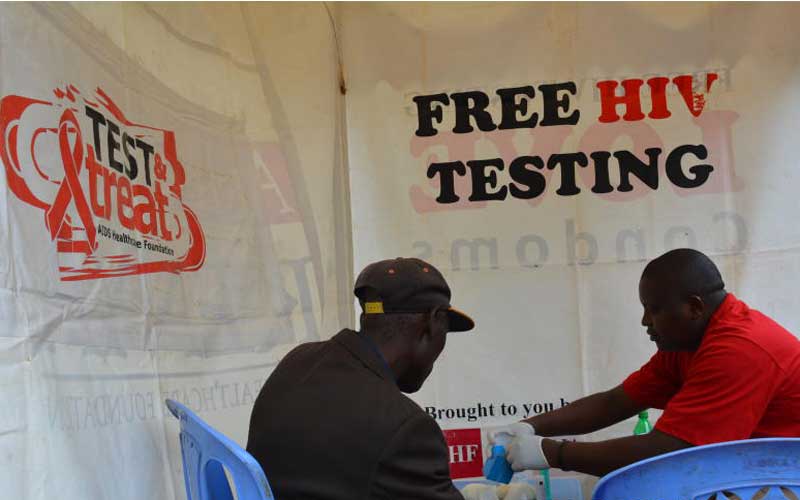
World Health Organisation (WHO) has released more refined guidelines on HIV testing that countries should adopt to target unreached victims that are yet to be diagnosed.
The guidelines revolve around targeting special populations, and how to incorporate community health workers in HIV treatment.
WHO estimates that there are 8.1 million people globally who are HIV positive but are yet to be diagnosed. Kenya has 1.6 million HIV positive people, with 1.2 million on treatment.
More people
WHO Director General Tedros Adhanom said the face of the HIV epidemic has changed dramatically over the past decade, with more people receiving treatment than ever before.
“…but too many are still not getting the help they need because they have not been diagnosed. WHO’s new HIV testing guidelines aim to dramatically change this,” he said.
In the latest guidelines, the global health body recommends countries to adopt a standard HIV testing strategy that involves three consecutive reactive tests.
“Previously, most high-burden countries were using two consecutive tests. The new approach can help countries achieve maximum accuracy in HIV testing,” reads the new guidelines in part.
WHO envisions that good HIV testing practices will enable those diagnosed to start treatment early.
“This will help reduce the 1.7 million new HIV infections occurring every year,” says WHO.
WHO also recommends countries to use HIV self-testing as a gateway to diagnosis based on evidence that people who are at higher risk and not testing in clinical setting are more likely to be tested if they access the kits.
Kenya launched the self-test HIV kits in 2017, sold at Sh500, but can be accessed in public facilities at subsidised rates.
Head of National Aids and STI Control Programme Catherine Ngugi said since its launch, the uptake has been good, especially in public facilities.
“The uptake now stands at 26 per cent. In the private sector, the challenge has been the cost,” said Dr Ngugi.
Start treatment
The kit has, in itself, contacts that if the test turns positive, one can reach out and be guided on how to start treatment.
“The organisation also recommends social network-based HIV testing to reach key populations, who are at high risk but have less access to services. These include men who have sex with men, people who inject drugs, sex workers, transgender population and people in prisons,” reads the guidelines in part.
WHO also wants countries to use peer-led, innovative digital communications such as short messages and videos to increase uptake of HIV testing.
Other recommendations are focused community efforts to deliver rapid testing through lay providers for relevant countries in the European, south-east Asian, western Pacific and eastern Mediterranean regions.
 The Standard Group Plc is a multi-media organization with investments in media
platforms spanning newspaper print
operations, television, radio broadcasting, digital and online services. The
Standard Group is recognized as a
leading multi-media house in Kenya with a key influence in matters of national
and international interest.
The Standard Group Plc is a multi-media organization with investments in media
platforms spanning newspaper print
operations, television, radio broadcasting, digital and online services. The
Standard Group is recognized as a
leading multi-media house in Kenya with a key influence in matters of national
and international interest.











